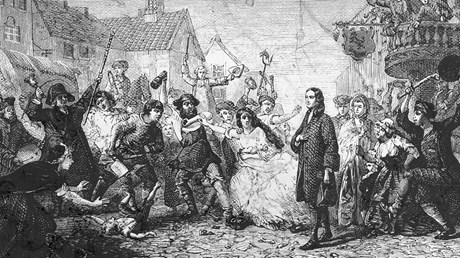The post-Reformation theologian has suggestions for post-Christian America.

The United States is currently in uncharted waters, both political and religious. As Harvard comparative religion professor Diana L. Eck noted, “Historians tells us that America has always been a land of many religions, and that is true. … The immigrants of the last three decades, however, have expanded the diversity of our religious life dramatically, exponentially.” Eck connects the dramatic increase in religious diversity since the 1970s with the conscious removal of explicitly racist immigration policies from US law during the Johnson administration. The failure to assist Jews attempting to flee the horrors of Nazi Germany and the success of the civil rights movement both caused calls for less racially discriminating immigration laws, and subsequently, the United States saw the massive surge in religious diversity that Eck speaks of.
Religious diversity has always been an American value, but this idea has moved from diversity amongst different primarily Christian groups to a much broader and more visible diversity in the last few decades, due both to fairer immigration policies and the lessening of explicitly Christian influences over national power structures. In the midst of these changes, Americans have had to re-affirm our commitment to religious diversity in a society that is becoming religiously diverse in increasingly tangible ways. And, I would argue, we haven’t done this particularly well at the political level.
We saw this on display at the confirmation hearing for recently confirmed 7th circuit Court of Appeals judge Amy Coney Barrett, when she was asked by Sen. Dick Durbin (D-Illinois) if she were an “orthodox Catholic,” and objecting that she did not have enough experience …
Source: Christianity Today Most Read